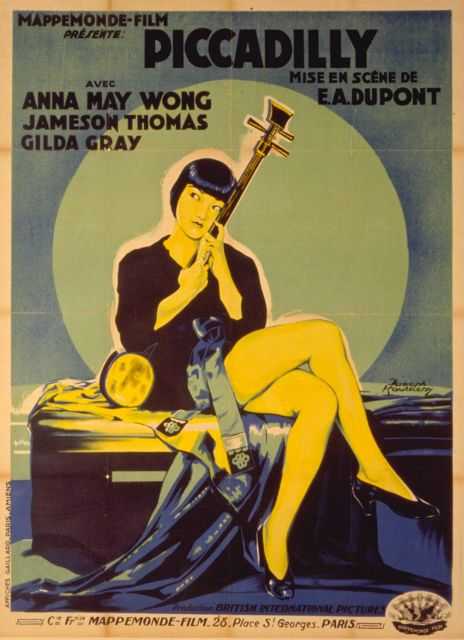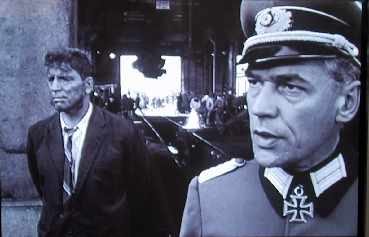DESTROY THE HEART
I don't own a Metallica record. Not one. I've never minded them, though, and always kind of liked songs like "One" and "Unforgiven." And I've always admired their dogged pursuit of whatever they decided their vision is, despite the legions of naysayers that felt they knew better. It's scary how often--and how recent--I quote ex-bassist Jason Newsted on selling out. "Yes, we sell out. Every seat, everywhere we play."
I don't fuckin' care. Sometimes the greatest rebellion is to do what everyone says isn't rebellion. While most comics readers I know bemoan how there are no real heroes anymore, I've always bemoaned that there are no real rebels. There is a sense to Metallica that, for all their money-hungry pursuits, they actually are doing exactly as they please. And if nothing else, they've never claimed not to want the money, they haven't hid behind that shield.

Turn your thumb out, and it means "I love you."
So, with that in mind, I go and see their new documentary, Some Kind of Monster, the extended therapy session that is the recording of their last album, St. Anger. That's no joke either. It's a therapy session. As in, they are paying a team therapist $40K a month to counsel them. When Newsted left, the remaining three members--James Hetfield, Lars Ulrich, and Kirk Hammett--hired a guy who advises baseball teams and things to help them come together as a band.
The film covers two years--half of them with Hetfield absent for rehab and recovery--of group hugs, bitter fights, and psychobabble as the guys learn to tell each other how they "feel" and ultimately create music again (it's fascinating to see the days events turn into the next song). I talked to one person beforehand who had seen the trailer for Some Kind of Monster and thought it looked staged, and at the time I argued that because of the position on non-reality these guys occupy, that what might seem fake or ridiculous to us is something they have to buy into. I stand by that, having seen the film now. They don't live in our world. The camera is also something you can't hide from, and even if two of the guys are faking it, there is always one guy in the room whose inner anxiety is coming through.
If you love the behind-the-scenes drama of rock bands, then this movie is for you. Be prepared, however, because it's extremely raw in parts. There is some real, honest pain on display here, stuff that is going to strike home for anybody who has ever been involved in a group endeavor where the principles can't do the basic thing of sitting down and talking to one another. Creative collaborations are often stained with the blood of bitten tongues and echo with the twang of hurt feelings, and after 20 years, it's no surprise these guys needed to get this shit out. The most cathartic moment comes when Lars has had enough of worrying about what Hetfield needs after his absence. He notes that every time he thinks of Metallica, the only word that springs to mind is "fuck." He says it over and over, finally getting two inches from Hetfield's face, and shouting, "FUCK!" God, the number of times I wanted to do exactly that! (Though never to James Hetfield, the big lug!)
It's fascinating to see how this all effects outsiders. Newsted never gets in on the process, and the interviews he grants sizzle with a repressed anger. Megadeth's Dave Mustaine is called in after two decades for a sit-down with Lars, and the damage this guy has done to himself--and had inflicted upon him by Metallica fans--as a result of being kicked out of the band is awful. Mustaine retains his dignity, though, by being able to note that his experience is not necessarily what the guys did to him, but just what he went through.

James and Lars, two seconds from a hug!
The other interesting character is the therapist, who isn't self-aware enough to see when he's outlived his usefulness. He goes from being a help to a hindrance, a contributor to a leech. Hetfield realizes it long after the audience, and is the first to say it out loud: the guy thinks he's part of the band. When trying to shake him off, as the psychobabble and touchy-feely buzzwords lose their meaning, they find he doesn't want to let go, and it becomes his final act of unifying the band. They come together to say they're done with him. It's also around the time Hetfield and Lars actually agree on something musically again, and both see it's because they actually listen to one another. (For his part, Hammett is always the voice of reason, the one who quietly says, "Come on, guys, let's just play some music.")
Some Kind of Monster should be required viewing for anyone who wishes to work in a creative endeavor that requires more than one person, the answer to what to do after Spinal Tap, when you can't laugh anymore. It's hard not to recognize yourself in it when you've been there, and thus not always easy to watch (I know it sadistically poked around in some of my more recent wounds), but man, is it worth it. Metallica fan or not.

Some kind of trouser monster. Metal, dude!
Current Soundtrack: Low, A Lifetime of Temporary Relief disc 2 
golightly@confessions123.com * The Website




























